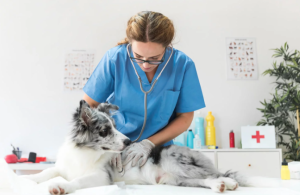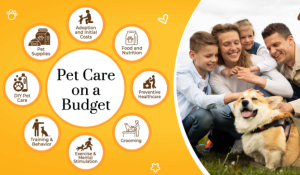Pet care
The Ultimate Guide to Pet Care: Ensuring a Happy and Healthy Life for Your Furry Friends
Owning a pet is a rewarding experience filled with joy, companionship, and unconditional love. However, ensuring that your pet leads a happy and healthy life requires more than just providing food and water. Comprehensive pet care involves a variety of aspects, from nutrition and grooming to health and training. This guide delves into the essential elements of pet care, offering valuable insights to help you give your pet the best life possible.

Understanding Your Pet’s Needs
Identifying Species-Specific Requirements Pet Care
Different pets have unique needs based on their species. Dogs, cats, birds, reptiles, and small mammals all have distinct requirements. For example, dogs generally need regular exercise, social interaction, and mental stimulation, while cats may require less exercise but benefit from interactive play and environmental enrichment.
Assessing Age and Health
Your pet’s age and health condition significantly influence its care requirements. Puppies and kittens need different nutritional and health care compared to senior pets. Understanding these stages of life will help tailor your care approach. For instance, senior pets may need specialized diets and regular veterinary check-ups to address age-related health issues.

Nutrition: Fueling Your Pet’s Well-Being
Choosing the Right Food FOR Pet Care
A balanced diet is fundamental to your pet’s health. For dogs and cats, high-quality commercial pet food that meets AAFCO (Association of American Feed Control Officials) standards is a good choice. For exotic pets, such as reptiles or birds, specialized diets formulated for their specific needs are essential. Always consult your veterinarian to determine the best food for your pet.
Understanding Dietary Needs IN Pet Care
Each pet has unique dietary needs based on its species, age, size, and health condition. Dogs and cats need proteins, fats, carbohydrates, vitamins, and minerals in specific ratios. Birds may require seeds, fruits, and vegetables, while reptiles often need a diet high in calcium and low in phosphorus. Ensure you’re aware of these needs to prevent deficiencies or excesses.
Monitoring Weight and Health
Maintaining a healthy weight is crucial for your pet’s overall health. Obesity can lead to various health issues, including diabetes, joint problems, and heart disease. Regularly monitor your pet’s weight and body condition. Adjust their food intake and exercise regimen as needed, and consult your vet for personalized advice.
Grooming: Keeping Your Pet Clean and Comfortable
Regular Brushing FOR Pet Care
Grooming is essential not only for your pet’s appearance but also for their health. Regular brushing helps remove loose fur, dirt, and prevents matting in long-haired breeds. It also promotes healthy skin by distributing natural oils. The frequency and type of brushing depend on your pet’s coat type.
Bathing and Hygiene
Bathing frequency varies by pet type and lifestyle. Dogs may require regular baths, especially if they have oily skin or a tendency to get dirty. Cats, on the other hand, usually groom themselves and may need occasional baths only if they get particularly dirty. Ensure you use pet-safe shampoos and follow proper bathing techniques.
Nail Trimming and Ear Care
Regular nail trimming is important to prevent discomfort and potential injury. Long nails can cause problems with walking and may even lead to infections. Ear care is also crucial; clean your pet’s ears regularly to prevent infections and check for signs of irritation or abnormal discharge.

Health Care: Preventing and Addressing Health Issues
Routine Veterinary Check-Ups
Regular veterinary visits are vital for maintaining your pet’s health. Routine check-ups help catch potential health issues early, ensure vaccinations are up to date, and provide opportunities for preventive care. Your veterinarian can also offer guidance on diet, exercise, and general pet care.
Vaccinations and Preventive Medications
Vaccinations protect your pet from various infectious diseases. Ensure your pet receives the necessary vaccines according to their age and risk factors. Additionally, preventive medications for parasites such as fleas, ticks, and worms are crucial. Consult your vet for a suitable preventive care plan.
Dental Health
Dental health is often overlooked but is essential for overall well-being. Dental disease can lead to pain, tooth loss, and systemic infections. Brush your pet’s teeth regularly with pet-specific toothpaste and provide dental chews or toys. Regular dental check-ups with your vet are also recommended.
Exercise and Mental Stimulation: Keeping Your Pet Active
Daily Exercise Requirements
Physical exercise is crucial for your pet’s health and happiness. Dogs generally require regular walks, playtime, and opportunities to run. Cats benefit from interactive play and climbing structures. Even small pets like rabbits and guinea pigs need space to explore and exercise.
Mental Stimulation
Mental stimulation helps prevent boredom and associated behavioral problems. Engage your pet with puzzle toys, training exercises, and interactive play. For dogs, activities like agility training or obedience classes can provide mental and physical challenges. Enrichment activities for cats might include puzzle feeders and scratching posts.
Social Interaction
Socialization is important for pets to develop healthy behaviors and adapt well to different environments. Regular interaction with other pets and people can enhance your pet’s social skills and confidence. Arrange playdates for your dog, or provide opportunities for your cat to interact with other friendly pets.

Training and Behavior: Building a Strong Bond
Basic Training Techniques
Training is essential for a well-behaved pet and strengthens the bond between you and your pet. Start with basic commands such as sit, stay, and come. Use positive reinforcement techniques, including treats and praise, to encourage desired behaviors. Consistency and patience are key.
Addressing Behavioral Issues
Behavioral issues can arise due to various factors, including lack of socialization, fear, or medical problems. Common issues include excessive barking, chewing, or aggression. Addressing these behaviors may require professional help from a certified animal behaviorist or trainer. Early intervention is crucial for resolving behavioral problems.
Enrichment and Challenges
Providing mental and physical challenges can prevent boredom and undesirable behaviors. For dogs, this might include puzzle toys, scent work, or training exercises. Cats enjoy interactive toys, climbing structures, and puzzle feeders. Enrichment activities keep your pet engaged and satisfied.
Safe and Comfortable Living Environment
reating a Pet-Friendly Home
A pet-friendly home ensures your pet’s safety and comfort. Remove hazardous items such as toxic plants, small objects that can be swallowed, and cleaning chemicals. Provide comfortable resting areas, toys, and safe spaces for your pet to relax. Ensure your home is secure to prevent escapes and accidents.
Seasonal Considerations
Pets may have specific needs based on the season. In colder weather, ensure your pet has a warm, comfortable place to sleep and consider dog coats for short-haired breeds. In hot weather, provide plenty of water, shade, and avoid exercise during peak heat. Seasonal changes may also affect your pet’s grooming needs.
Travel and Transportation
Traveling with pets requires planning and preparation. Ensure your pet is comfortable and safe in a secure carrier or vehicle restraint. Prepare for long trips by bringing food, water, and familiar items. Familiarize yourself with pet-friendly accommodations and travel regulations if you’re crossing borders.
Responsible Pet Ownership
Commitment and Responsibility
Owning a pet is a long-term commitment that requires time, effort, and resources. Consider your lifestyle and ability to provide for your pet’s needs before adopting. Responsible pet ownership includes regular veterinary care, proper training, and ensuring your pet’s overall well-being.
Spaying and Neutering
Spaying or neutering your pet can prevent unwanted litters and reduce the risk of certain health issues. It also helps manage pet overpopulation. Discuss the best time to spay or neuter with your veterinarian, as this can vary based on your pet’s age and health condition.
Ethical Considerations
Ethical pet ownership involves treating your pet with kindness and respect. Avoid supporting puppy mills or unethical breeders. Consider adopting from shelters or rescue organizations to provide a home for pets in need. Ensure your pet’s needs are met and that they are provided with a loving and supportive environment.
Emergency Preparedness
Preparing for Emergencies
Being prepared for emergencies ensures your pet’s safety in unexpected situations. Create a pet emergency kit that includes essential supplies such as food, water, medications, and first aid items. Familiarize yourself with emergency procedures and keep your pet’s medical records accessible.
Identifying Signs of Illness
Knowing how to recognize signs of illness can help you seek timely veterinary care. Common signs of illness include changes in appetite, vomiting, diarrhea, lethargy, or unusual behavior. If you notice any concerning symptoms, consult your veterinarian promptly.
First Aid Basics
Basic first aid knowledge can be invaluable in emergencies. Learn how to perform CPR for pets, treat minor wounds, and handle choking incidents. Enroll in a pet first aid course to gain essential skills and confidence in managing emergency situations.
Enhancing the Human-Pet Bond
Quality Time and Affection
Spending quality time with your pet strengthens your bond and contributes to their emotional well-being. Engage in activities your pet enjoys, such as playtime, walks, or cuddling. Show affection through petting, praise, and positive interactions.
Communication and Understanding
Effective communication with your pet fosters a strong relationship. Pay attention to your pet’s body language and vocalizations to understand their needs and feelings. Responsive and empathetic communication helps build trust and strengthens your connection.
Celebrating Special Moments
Celebrate special moments and milestones with your pet, such as birthdays or adoption anniversaries. Create memorable experiences by giving your pet a special treat, organizing a fun activity, or simply enjoying quality time together.

Conclusion
Proper pet care is essential for ensuring your pet’s health, happiness, and well-being. By addressing their nutritional needs, providing regular grooming, and attending to their health care, you can enhance their quality of life. Training, exercise, and
a safe living environment further contribute to a fulfilling and enjoyable life for your pet. Embracing the responsibilities of pet ownership with commitment, empathy, and love will ensure that your furry friend leads a long, healthy, and happy life.






